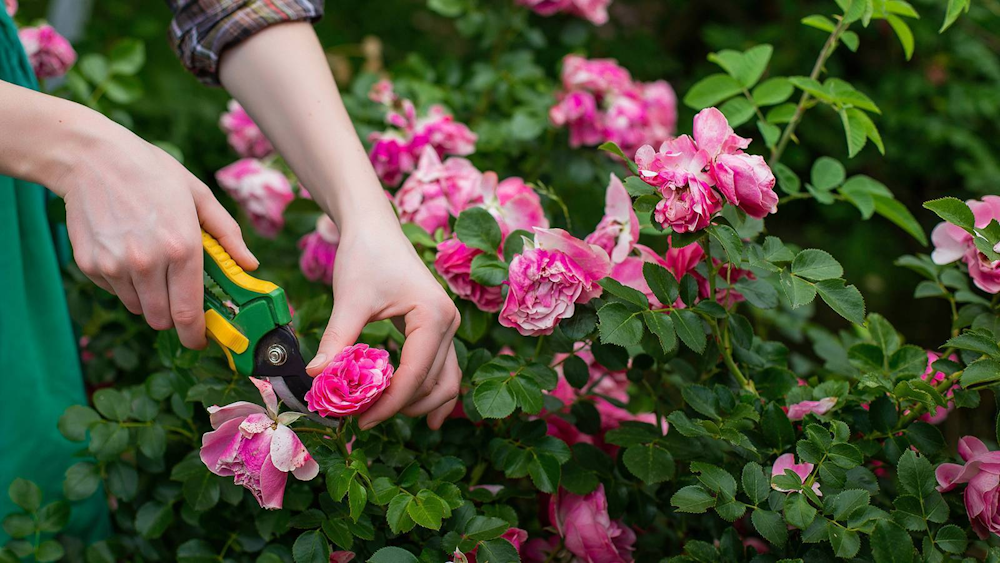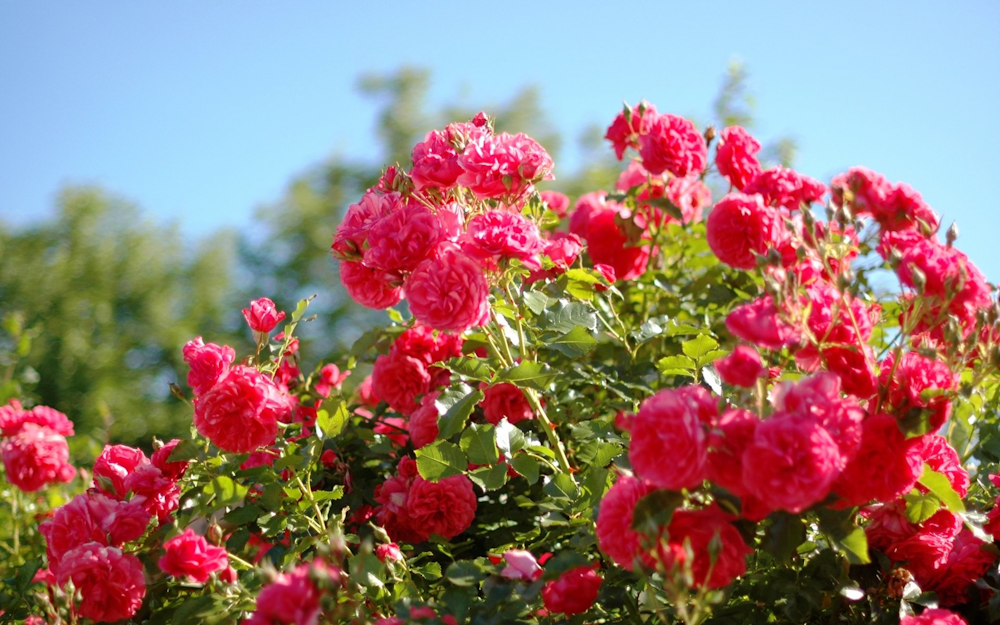During the hot summer months, your rose garden requires special attention to remain healthy and provide beautiful blooms all season long. While roses are hardy plants, the summer heat can present unique challenges that could impede their growth. Proper care, which includes efficient watering, timely pruning, and vigilant pest control, ensures that your roses will thrive even in the hottest days. This article will provide essential gardening tips to help you through each aspect of summer rose care, so you can enjoy your garden at its best for the longest time.

Understanding Your Roses’ Summer Needs
Roses are resilient flowers, but even they might struggle during the scorching summer months. It’s essential to watch for signs of heat stress, such as wilting or yellowing leaves, which indicate that your roses may require additional care. Roses need plenty of sunlight, but during the hottest days, they could also benefit from some shade, especially in the afternoon. The proper soil moisture is key to having your plants cope with the heat, as roots need enough hydration to sustain healthy growth.
Choosing the Right Rose Varieties for Your Climate
The best way to ensure your roses can withstand the summer sun is to choose varieties accustomed to your local weather conditions. Heat-tolerant species such as Knock Out roses, carpet roses, and certain climbing and tea roses are recommended for gardens in hotter climates. Researching the preferred rose variety for your area may involve asking local gardening specialists for advice or looking into regional gardening tips.
Watering Your Roses in the Heat
Proper watering is crucial for your roses, particularly during dry summer weather. You should water your roses thoroughly and less frequently, encouraging deeper root growth which helps plants become more drought-resistant. The best time for watering is early in the morning, to allow the water to reach the roots before the temperatures peak, thus reducing the risk of evaporation and fungal diseases.
Mulching to Retain Moisture and Control Weeds
Mulching not only retains soil moisture but also prevents weeds from stealing vital nutrients from your roses. Organic mulches such as wood chips or compost will help keep the soil cool and moist and will slowly break down, contributing organic matter to the soil. A good rule of thumb is to maintain a 2-inch layer of mulch around your roses, avoiding piling it against the stems to prevent rot.
Nutrient Management for Peak Blooms
During the early summer, it’s a good time to feed your roses to promote blooming throughout the season. However, you should not fertilize in late summer as this might encourage new growth that does not have enough time to harden off before the winter months. Fertilizers should be applied according to the label instructions and should be appropriate for the type of roses and soil conditions you have.
| Time of Year | Fertilizer Type | Frequency |
|---|---|---|
| Early Spring | Slow-release, Balanced | Once as growth begins |
| After First Bloom | Water-soluble, High Phosphorus | Every 4-6 weeks |
| Late Summer | None | Stop fertilizing |

Pests and Disease Prevention During Summer
Ensuring your roses remain free from pests and diseases is an important aspect of summer care. Look out for signs of infestations, such as damaged leaves or flowers, and apply appropriate treatments such as organic insecticides or fungicides to prevent diseases. Encouraging beneficial insects to your garden is a natural way to keep harmful pests away. Regular inspection and proper care will help keep pests and diseases at bay.
Providing Shade and Air Circulation
On the hottest days of summer, providing some shade for your roses during the peak sun hours could help prevent foliage burn. This could be done by strategically placing taller plants or using shade cloths. Equally important is ensuring good air circulation around the bushes to reduce the risk of fungal diseases that thrive in stagnant, humid conditions. Prune away any dead leaves and spent flowers to promote air flow.
Preparing Roses for Late Summer and Early Fall
As the summer wanes and early fall approaches, it is an excellent opportunity to prepare your roses for the cooler months ahead. Begin reducing the amount of watering to help harden your plants. It’s also a good time to give your roses a lighter prune to encourage newer growth that will survive the impending cooler weather. By taking care of these steps in late summer, you will ensure a robust start for the next growing season.
- Reduce watering gradually to allow plants to harden off
- Perform a lighter prune to promote new, hardier growth

Conclusion
By following these care tips for your roses in the summer, you can help ensure they remain healthy, vibrant, and full of blooms. Whether it’s ensuring proper hydration, giving the right nutrients, or keeping pests and diseases in check, every step you take contributes to a thriving rose garden. Remember that consistent care is key, and you will be rewarded with the stunning sight of your roses flourishing all season long.
FAQs
- How often should I water my roses in summer? Roses should be watered deeply at least twice a week during the summer months; however, you might need to adjust this frequency depending on temperature and weather conditions. Always check the soil for dryness a couple of inches down to determine if more watering is required.
- Is it better to water roses in the morning or evening? It is better to water roses in the early morning to prevent evaporation and reduce the risk of fungal diseases which can take hold if the foliage does not have time to dry out before nightfall.
- Can roses get too much sun in the summer? While roses typically thrive in sunny conditions, during periods of extreme heat, they can suffer from sunburn, leading to withered blossoms and scorched leaves. Providing afternoon shade on the hottest summer days will help protect them.
- What kind of mulch should I use for my roses? Organic mulches like aged wood chips, pine needles, or well-rotted compost are ideal for roses, as they help maintain soil moisture, keep roots cool, and add beneficial nutrients as they break down.
- How can I protect my roses from pests naturally? Encouraging a diverse ecosystem in your garden by planting a variety of species can attract beneficial insects that prey on common pests. Regularly inspecting your roses and removing any pests by hand or using organic sprays such as neem oil can also be effective in keeping your roses thriving without the use of harsh chemicals.
